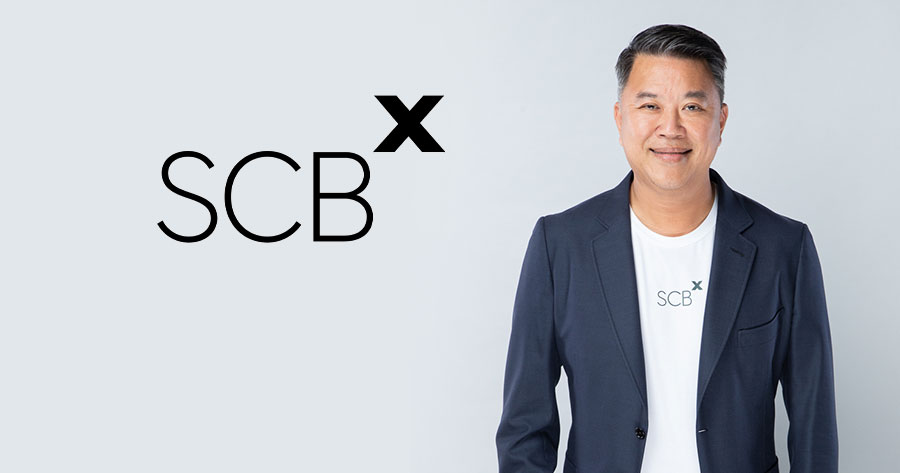SCB X Public Company Limited (SET: SCB) has announced its 1Q25 consolidated financial statement through the Stock Exchange of Thailand as follows:
| Quarter | 1Q25 | 1Q24 |
| Net Profit (Loss) Million Baht |
12,502.10 | 11,281.02 |
| Earning Per Share (Baht) |
1.2800 | 1.7800 |
| % Change | 10.82 | |
SCB reported a net profit of Baht 12,502 million for the first quarter of 2025, an increase of 10.8% from the same period last year, due to efficient cost control and prudent balance sheet management of the company.
In 1Q25, net interest income was Baht 31,047 million, decreasing 2.2% yoy due to a narrower net interest margin (NIM) and an overall loan portfolio contraction of 1% from prudent new loan underwriting. Fee and other income totaled Baht 10,251 million, increasing 0.7% yoy, driven by growth in wealth management fee, while bancassurance and lending-related fees declined.
Operating expenses decreased by 5.3% yoy to Baht 17,140 million due to effective cost control measures and the discontinuation of the Robinhood platform business in 2024. The Company’s cost-to-income ratio decreased to 39.9%.
Total loans decreased by 1.0% yoy but increased by 0.9% qoq at the end of March 2025. Loans under portfolio companies, including loans extended by CardX, AutoX, MONIX, ABACUS digital, and InnovestX increased by 2.2% yoy but decreased by 3.8% qoq at Baht 177,490 million.
CardX loans (personal loans and credit card receivables) decreased by 13.5% yoy and 7.7% qoq, amounting to Baht 92,275 million at the end of March 2025. The decline was attributed to CardX’s cautious stance on the credit environment, resulting in tightened underwriting criteria and processes for new bookings, as well as reduced exposure to the self-employed segment in the personal loan portfolio.
AutoX loans grew by 26.8% yoy but declined by 1.5% qoq, totaling Baht 51,910 million. The qoq decrease reflects AutoX’s cautious approach to risk management and new loan underwriting. The company continues to closely monitor credit quality in the auto title loan segment.
The provisions decreased by 6.2% yoy, primarily due to improved asset quality in both SCB Bank and Gen 2 businesses, particularly from CardX business. These provisions include additional cushion against potential impacts from U.S. tariffs, based on preliminary assessment. The non-performing loan (NPL) coverage ratio remained high at 156%.
As of the end of March 2025, non-performing loans (NPLs) on a consolidated basis increased by 3.4% yoy and 0.9% qoq, reaching Baht 98.5 billion. The Bank’s NPLs were relatively stable qoq, mainly driven by the retail segment, particularly housing loans and the SSME segment. NPLs for Gen 2 slightly increased qoq due to higher delinquencies from AutoX and MONIX, although CardX showed improvement. The NPL ratio increased to 3.45%, compared to 3.37% at the end of December 2024.
At the end of March 2025, the Group’s coverage ratio decreased to 156.1%, down 1.9% qoq largely from an increase of NPLs and lower allowance ECL. The Group’s total loan loss reserve as a percentage of total loans (LLR %) remained strong at 6.1%.
Statement from SCB’s CEO Arthid Nanthawithay:
“The year began with significant challenges, from the earthquake to high uncertainty of U.S. tariff escalations. The Company promptly implemented measures to assist retail and SME customers affected by the earthquake, including loan payment deferrals and financing support for housing repairs and business recovery. The Company expects the impact on SCBX group’s businesses to be limited.
The Company estimates the impact from U.S. tariff will reduce the country’s GDP this year to 1.5%, with the potential for more severe consequences than anticipated. The Company has taken proactive preparations by closely monitoring our customers’ situations to assess both direct and indirect impacts and collaborating with customers to develop appropriate solutions.
Despite these challenges, our first-quarter 2025 results reflect solid performance, driven by effective cost control and prudent asset quality management. In this quarter, SCBX’s group cost-to-income ratio was below the industry average, while Gen 2 and Gen 3 businesses continued to contribute increasing profits, complementing Gen 1 business performance.
The Company has announced a dividend payment of 80% from last year’s performance and remains committed to maintaining financial strength to support our customers and the Thai economy while continuously enhancing shareholder value.”





